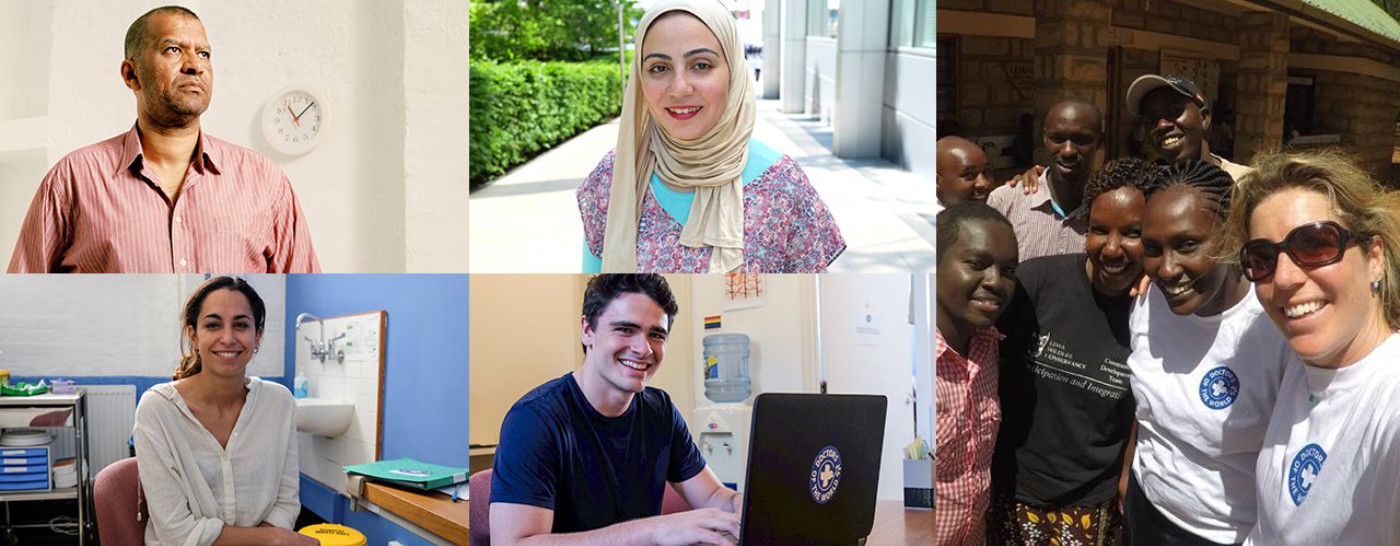Meet the volunteers helping excluded people get healthcare
Published 1st June 2017
In our clinics around the world, volunteer doctors, nurses, caseworkers and co-ordinators give their time to help us reach people in need. We have over 120 current volunteers in our UK clinics, while the wider Médecins du Monde network has around 3,000 volunteers.
As part of the UK’s annual Volunteer Week, we’d like you to meet just a few of the people we rely on.
Maria Zavala, nurse
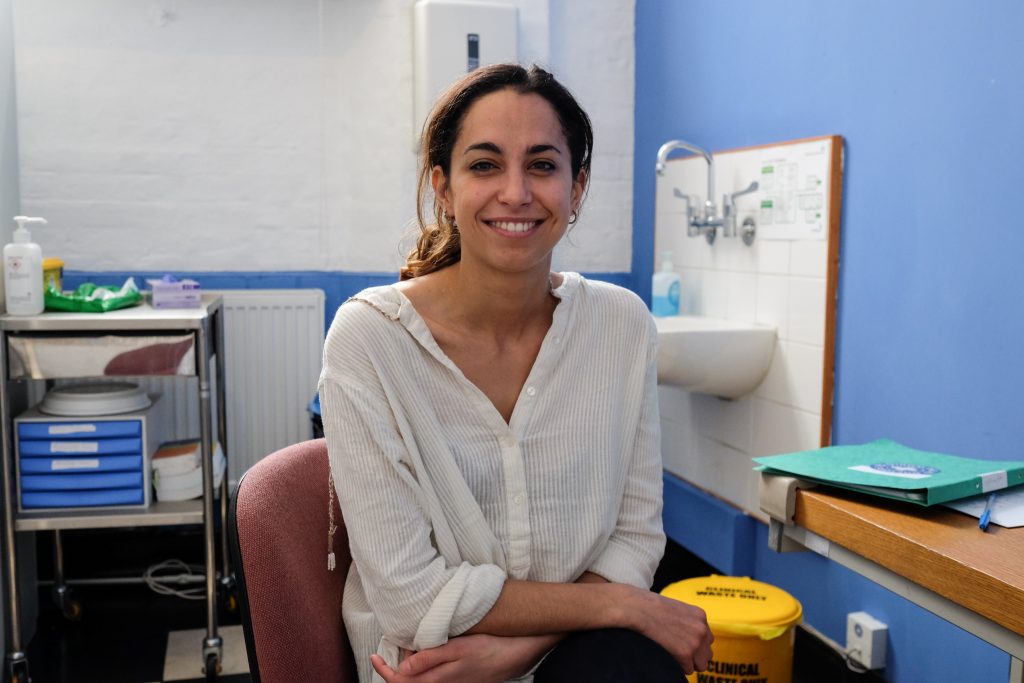
Maria is a 25-year-old nurse who volunteers at our clinic in London, where we work with vulnerable groups including asylum seekers, undocumented migrants, victims of trafficking, and homeless people. “I’ve always felt that it’s important to do something to help others. It doesn’t have to be something big – small things can make a big difference,” she says.
Maria’s patients are often heavily pregnant women who are not accessing NHS antenatal care, even though they have a right to do so, because they’ve been wrongly turned away from their GP or fear being sent huge bills they can’t pay.
“This is very different to my hospital work and it’s useful to have these different experiences,” Maria says. “Here, you work closely with the caseworkers so you get a wider picture of the patients’ situations and social needs. There’s so much happening to people in London that you just don’t know about.”
Aaminah Verity, doctor
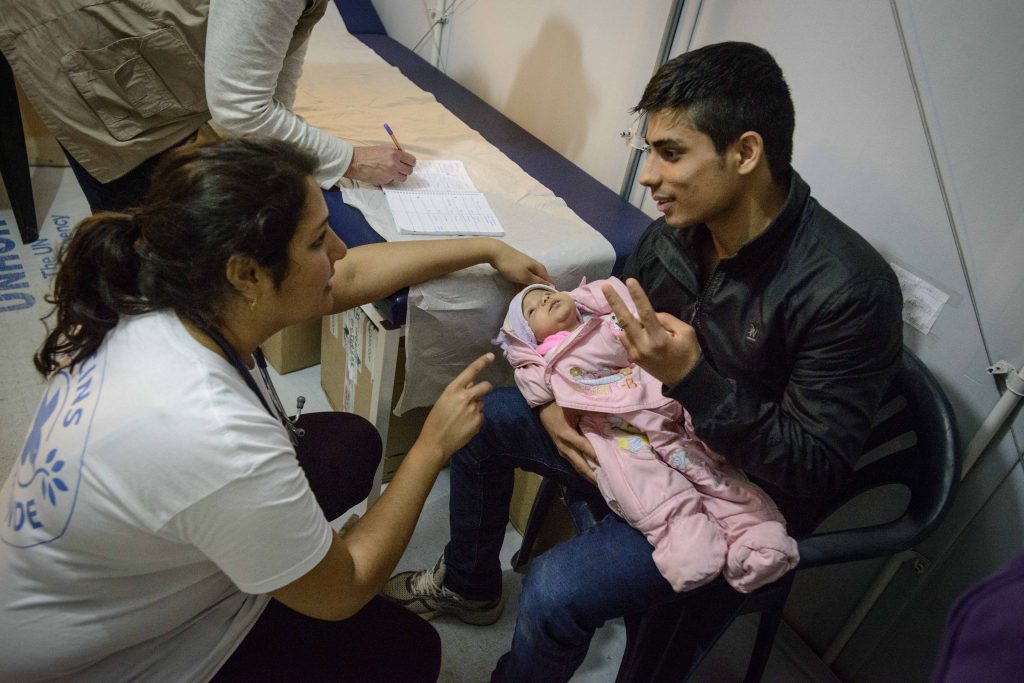
In Greece’s refugee camps, when Aaminah put infrared thermometers to the children’s foreheads, she was shocked to see them scream and drop to the floor.
“We realised it was making them think of a gun to the head,” she says. “We had to demonstrate by putting the thermometers on our own heads first to calm them down.”
Aaminah volunteered for us several times in 2015 and 2016, working in refugee camps in Slovenia and Greece. During her three-month stint on the Greek island of Chios, where people would arrive on dinghies to seek safety in Europe, she saw patients aged between five months and 84 years. “Every person I met had lost someone they loved,” she says.
You can watch a video about Aaminah’s time in Chios here and read her blog about her stint in Slovenia here.
Max Moloney, caseworker
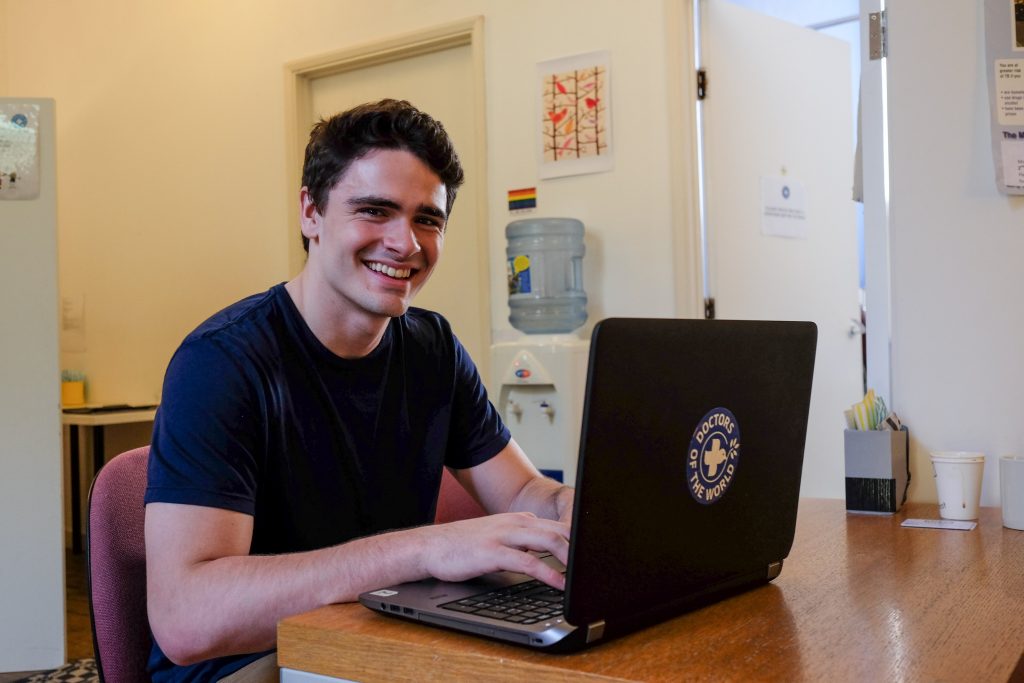
Max is a 19-year-old Canadian student who’s doing a summer volunteer placement with Doctors of the World’s UK team. Working at our London clinic and on our advice line, he helps vulnerable people such as asylum seekers and undocumented migrants to register with a GP. Many of our patients have been wrongly turned away by their local surgery before we step in.
“These patients need and deserve to see a doctor,” Max says. “If I help someone register with a GP on one day, I’ll put in a call the next week to make sure everything has gone okay. I like following up, making sure that what you’ve done for someone will have an impact that lasts.”
Max’s work involves difficult moments too. He recently saw a Filipino domestic worker at our clinic who decided not to register with a GP because the Home Office, the government department that handles immigration, is using NHS patients’ private records to obtain addresses and deport undocumented migrants. “What’s happening isn’t right. It’s a travesty,” he says.
Lucy Obolensky, doctor
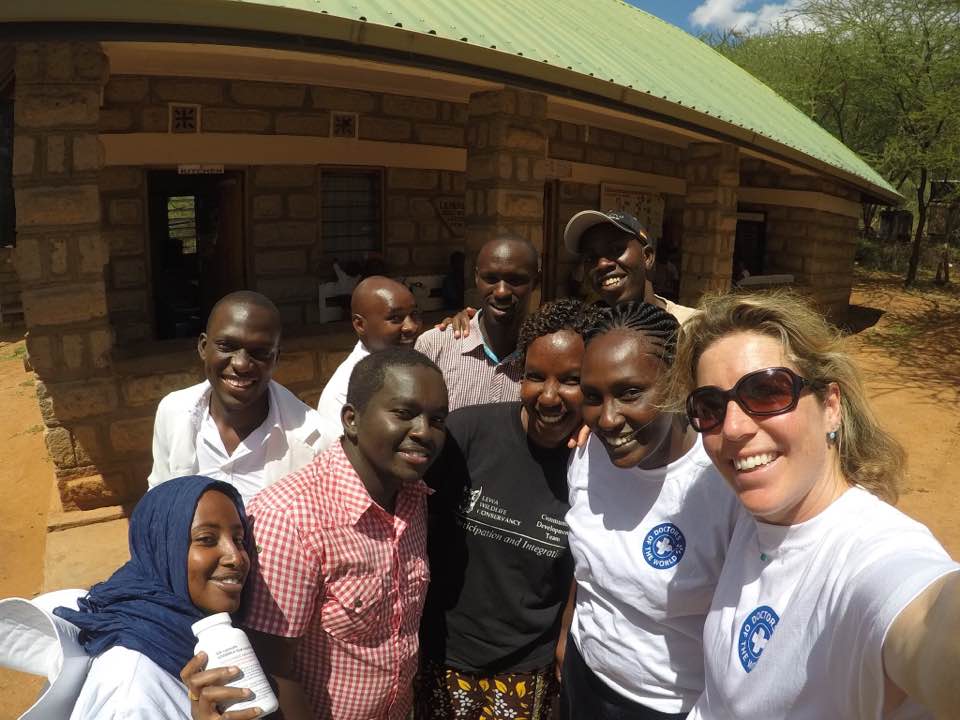
Lucy is a GP and emergency services doctor who spent a month volunteering for us as a medical co-ordinator in Kenya this spring. Here’s her farewell selfie with our Kenya team, just before she returned home to the UK.
Lucy was in Kenya to help us set up our new emergency malnutrition project. We’re doing weekly outreach sessions in remote villages, in order to find and treat children who are at risk as a terrible drought takes hold. One of the villages we’re working in is a three-day walk from the nearest health facility.
“With this drought comes a huge need for primary and public healthcare. We’re seeing huge amounts of hunger, for example in schools we’ve visited and among pregnant women,” Lucy says.
Mai Seida, caseworker
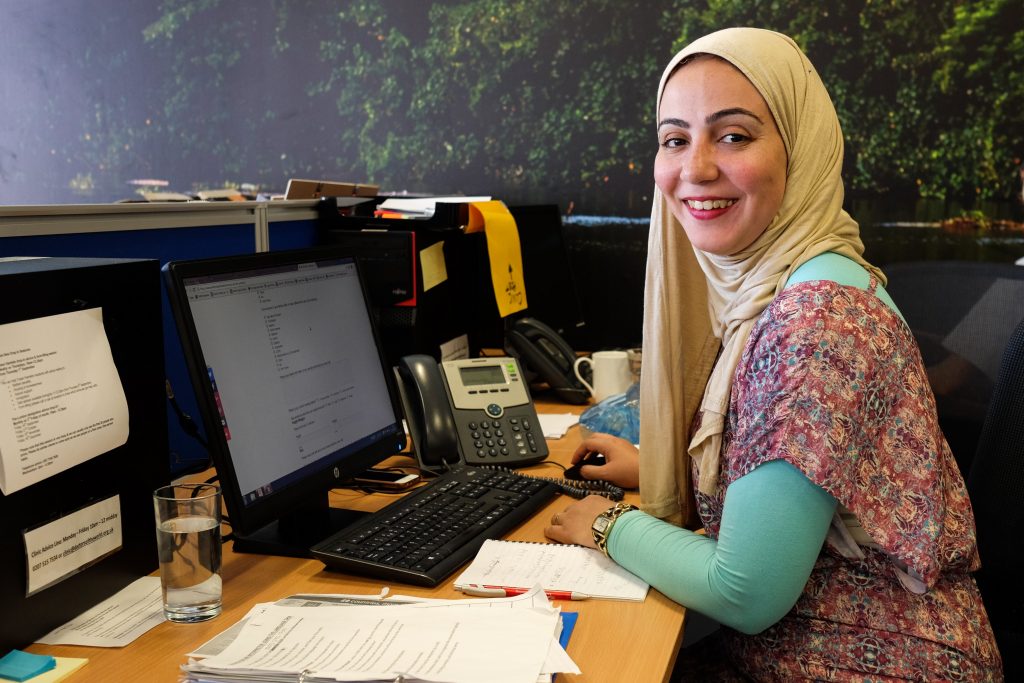
Mai says that volunteering at our London clinic has given her an insight into countries around the world. She has worked with patients from countries such as Afghanistan, Pakistan, Bangladesh, China and several African nations.
“You learn how difficult life is in many countries,” she says. “I’ve met mothers who’ve left their home countries, and have had to leave their children behind because there weren’t any jobs and they couldn’t support their families. So they have to work here and send money home. Sometimes they haven’t seen their children for 10 years.”
Mai says anxiety is one of the most common problems she sees in our patients, who have often been through traumatic experiences in their home countries. She recently helped a Brazilian patient who was deaf and struggling to get counselling, because he couldn’t explain his needs.
“Even if you only have time to volunteer once a month, you should do it,” says Mai, a 34-year-old trained pharmacist. “You’re using your time in a good way, to help others. And you get out of your routine – you learn about new activities, new things, new worlds.”
Ibrahim, clinic support worker

Seven years ago, Ibrahim was a high-profile doctor in Sudan. But when he sensed that members of the government didn’t approve of a peace-building project he was setting up, he feared for his safety and fled to the UK.
Ibrahim started volunteering at our London clinic in 2014. He hadn’t passed the exams required to practice as a doctor in the UK and the setback had hit him hard, but at our clinic he began to learn the language and teamwork skills he needed. He passed his exams in 2016 and is now on a paid tring programme that integrates refugee doctors into the NHS.
As a clinic support worker, Ibrahim took patients’ histories and helped them register with a GP. He says every patient had a story that moved him – he met one woman who had given birth in her kitchen because she was too afraid to go to an NHS hospital.
“I gained a sense of belonging and of worth at Doctors of the World,” he says. “Volunteering is not just about helping others – I myself gained a lot.”
